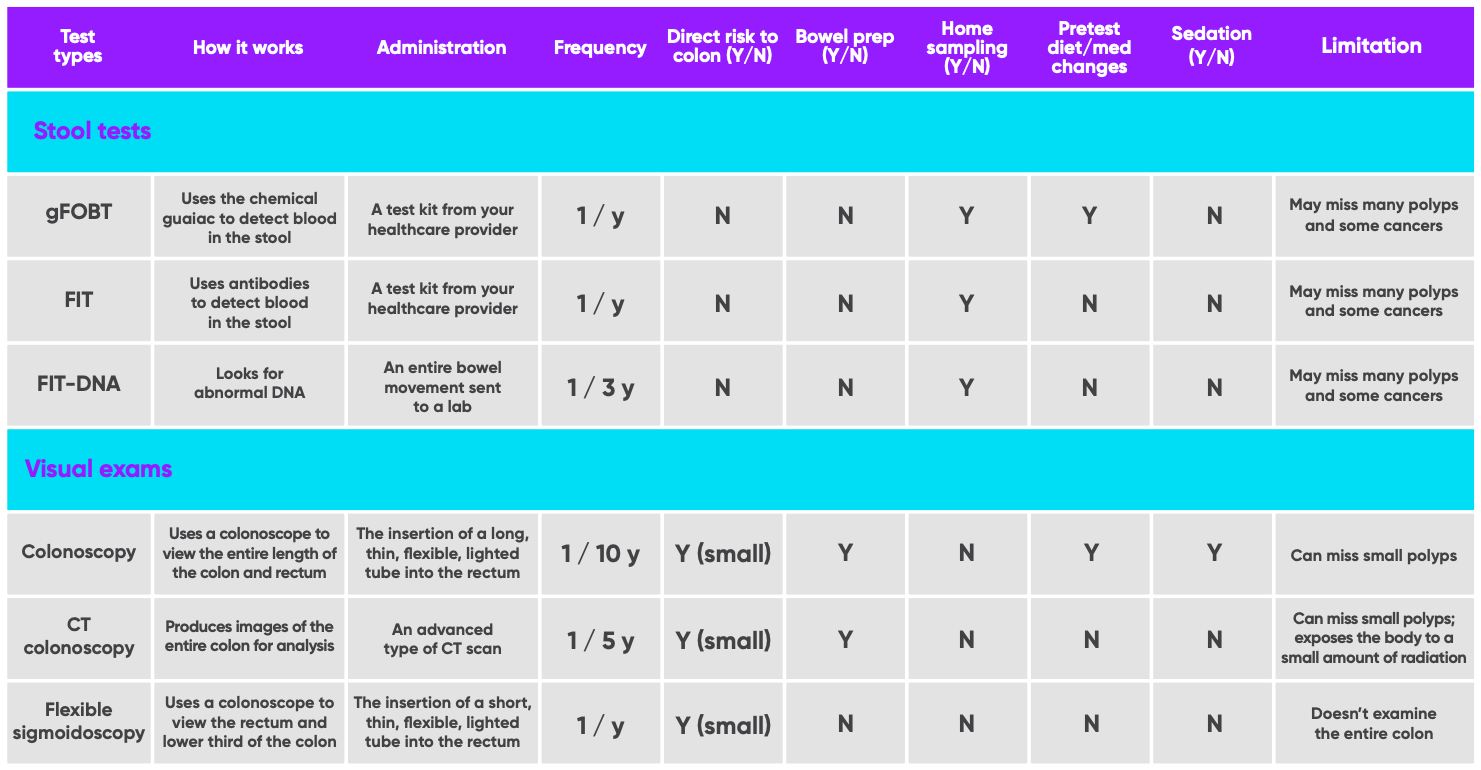The links between diet, weight, and exercise and the risk of developing colorectal cancer are some of the strongest for any type of cancer.1
Prevention and early detection
Studies suggest that consuming a diet low in animal fats and high in fruits, vegetables, and whole grains reduces the risk of colorectal cancers, as can increasing physical activity, limiting alcohol consumption, and avoiding tobacco. Along with these healthy behaviors, the most effective way to reduce the risk of colorectal cancer is to routinely get screened to find it early, when treatment works the best.2
People at average risk of colorectal cancer should start undergoing screening at the age of 45. Those in good health who expect to live at least 10 years longer should continue getting screened regularly until they're 75. After that, people should ask their doctor if they need to pursue screening based on their specific health, preferences, life expectancy, and screening history, although those older than 85 no longer need to get screened.3
→ Get the trend sheet: Putting colorectal cancer to the test [Download Now]
Different options to choose from
People can choose from several screening tests to find polyps or colorectal cancer, talking to their doctor to determine which one is right for them4:

Updated February 28, 2022
References
1 Colorectal cancer risk factors. American Cancer Society Web site. https://www.cancer.org/cancer/colon-rectal-cancer/causes-risks-prevention/risk-factors.html. Updated June 29, 2020. Accessed November 30, 2020.
2 What can I do to reduce my risk of colorectal cancer? Centers for Disease Control and Prevention Web site. https://www.cdc.gov/cancer/colorectal/basic_info/prevention.htm. Updated February 10, 2020. Accessed December 1, 2020.
3 American Cancer Society guideline for colorectal cancer screening. American Cancer Society Web site. https://www.cancer.org/cancer/colon-rectal-cancer/detection-diagnosis-staging/acs-recommendations.html. Updated November 17, 2020. Accessed February 28, 2022.
4 Colorectal cancer screening tests. American Cancer Society Web site. https://www.cancer.org/cancer/colon-rectal-cancer/detection-diagnosis-staging/screening-tests-used.html. Updated June 29, 2020. Accessed December 1, 2020.
